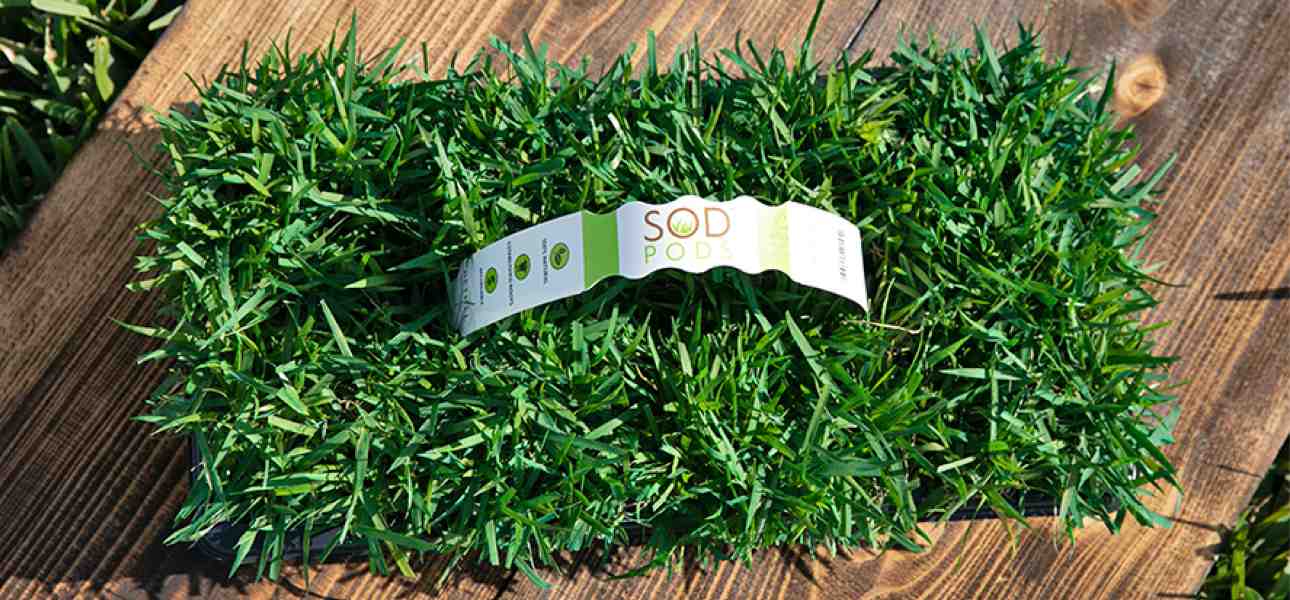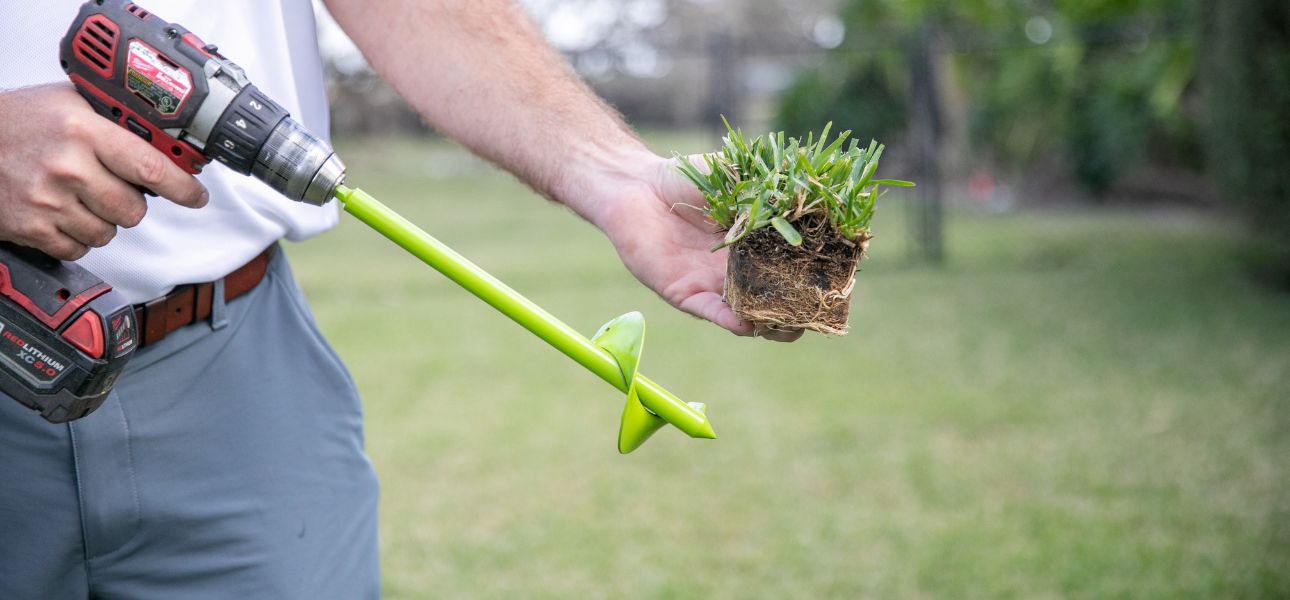What is the Best Grass for High-Traffic Lawns?
Published on
A lush, green lawn is often the pride of homeowners. But what fun is it if you can't enjoy it with some activity?
Whether you have kids or pets, or love hosting barbecues and get-togethers, your lawn should be a safe and inviting space for play and socializing. All that fun sure can take a toll on your grass. The frequent foot traffic and activities can make it challenging to keep it dense, green, and healthy-looking.
Fortunately, with proper lawn care practices, you can maintain a high-traffic lawn that your eyes and feet can equally appreciate. It all starts with selecting a durable grass variety known for its excellent traffic tolerance.
Qualities to Look for in High-Traffic Grass
When looking for a type of grass that looks and performs great under wear and tear, it's essential to start with varieties that are suitable for your region. In Florida and other southern areas with warm temperatures nearly year-round, consider warm-season grass varieties like Bermuda, Zoysia, and St. Augustine.
Aside from climate conditions, several other characteristics can affect how well your lawn handles constant foot traffic from outdoor activities and playtime.
Growth Habit: Grass with vigorous, spreading growth forms a dense lawn that is more resistant to wear and tear compared to non-spreading varieties that form clumps. This dense turf also provides a soft surface, which is safer for play.
Recovery Rate: Spreading grasses with vigorous growth can also rapidly fill in damaged areas, allowing them to recover faster from traffic damage.
Fast Establishment: Faster rooting shortens the time necessary to establish your lawn and get it ready for activity. This is the same reason why grass plugs, which are pre-grown mature grass with strong roots, are preferred over traditional grass seeds by homeowners looking to establish a lawn quickly. With their established roots, another advantage of grass plugs is that they require less water for establishment than traditional sod.
Deep Root System: Grasses with deep roots are more drought-tolerant and can withstand environmental stresses such as heat. This resilience translates to better wear resistance and less damage from traffic.
Pest and Disease Resistance: Weeds, pests, and diseases can diminish your lawn's ability to withstand heavy use. A dense lawn can outcompete weeds and boost your grass's resistance to pests and diseases, thereby improving your lawn's traffic tolerance.

The Best High-Traffic Grass for Florida Lawns
In terms of high-traffic lawns, Bermuda and Zoysia grasses stand out as top options, owing to their resilient nature. Some varieties of St. Augustine are also cultivated to have moderate levels of traffic tolerance with their dense and fast-growing nature.
Their viability to be planted as grass plugs further adds to their appeal. These grass plugs consist of mature grass with established root systems, which speeds up their establishment. Overall, this makes them a convenient option for establishing a new lawn or repairing damaged areas.
Bermuda Grass
Bermuda grass is known for its aggressive growth habit, spreading by above-ground stolons and below-ground rhizomes, allowing it to form a dense turf in a relatively short time frame. This feature also means Bermuda grass lawns can withstand heavy foot traffic and recover quickly from damage.
Additionally, Bermuda grass boasts a deep root system, which not only increases its heat and drought tolerance but also contributes to its overall durability and wear resistance. It also exhibits exceptional resistance to pests and diseases.
While common Bermuda grass, characterized by its light green color and rough texture, is favored for its relatively low maintenance requirements, improved Bermuda varieties like BIMINI® Bermudagrass demand more regular upkeep. Nevertheless, they compensate for this with a more durable lawn. BIMINI®, in particular, has a softer feel underfoot yet is more resistant to foot traffic. In a trial done by Oklahoma State University, BIMINI® ranked number one in traffic tolerance and tensile strength. In another study, the ASHS found the variety to be the most persistent grass under traffic.
Additionally, BIMINI® features better cold tolerance, maintaining its dark green color in colder temperatures that would usually send other grass types into a dormant state.
Zoysia Grass
With its dense growth habit, Zoysia grass is also tolerant to wear and tear, making it an excellent option for high-traffic lawns. It forms a lush grass carpet with light to medium green blades. One of the advantages of Zoysia vs. Bermuda grass is that although it requires full sun, it handles shade better than any other warm-season grass.
Zoysia grass features a deep root system, which allows it to access water deeper in the soil, improving its drought tolerance. It also contributes to its ability to recover quickly from damage, ensuring your lawn stays lush and beautiful even under heavy use.
Overall, Zoysia grass contributes to low-maintenance, high-traffic lawns that require less water than other grass types. Its ability to thrive in warm climates, such as in Florida, coupled with its wear tolerance, makes it a great option for homeowners seeking a resilient and visually appealing lawn.
St. Augustine Grass
While St. Augustine grass may not tolerate wear and tear as well as Bermuda and Zoysia grass, its broad, coarse leaves offer a small price to pay for its ability to withstand moderate use. This grass spreads quickly by stolons, forming a lush, dense turf with an attractive blue-green color. This growth pattern allows it to recover quickly and effectively compete with weeds.
If high-foot traffic is a concern for your lawn, consider varieties like ProVista™ St. Augustine grass. Unlike more common varieties, ProVista™ is slow-growing. It has a dense, horizontal growth habit, which ensures a traffic-tolerant lawn with half the usual mowing requirements.

How to Maintain Grass in High-Traffic Areas
Simply walking on your lawn is unlikely to harm your grass directly. Instead, the brown patches of dead grass on your lawn often result from compacted soil, which is a significant consequence of constant heavy foot traffic.
Soil becomes compacted over time due to constant pressure from foot traffic, machinery, and other activities that further compress the soil particles, like overwatering. It makes it harder for air, water, and nutrients to penetrate the soil and reach the roots. This compaction also restricts root growth, reducing its ability to uptake nutrients, and leading to a decline in overall lawn health.
Because compacted soil also has poor drainage, water can pool on the surface, damaging plants and creating conditions favorable for pests and diseases. Therefore, proper maintenance is crucial to maintaining a healthy lawn and preventing issues related to soil compaction.
Aerate Annually
Aerating is the process of perforating the soil with small holes to allow air, water, and nutrients to access the roots more effectively. It helps relieve soil compaction and contributes to healthier grass growth.
There are two main types of aerators: spike aerators, which use spikes to create small holes in the soil, and core aerators, which remove plugs of soil from the ground. You can use a grass-plugging tool to function as a core aerator, which is more effective at relieving compaction because it creates space for air and water to reach the roots.
It is generally advised to aerate your lawn annually, preferably at the beginning of the growing season. You can do it before planting grass plugs in the spring.
Mow at the Maximum Recommended Height
Exactly how high you should mow your lawn depends on the type of grass you grow. However, maintaining the grass blades at the maximum recommended height provides more cushioning underfoot. It also promotes a healthy root system and encourages dense, lush growth, which contributes to your lawn's resilience to foot traffic and ability to suppress weeds.
The recommended mowing height for Bermuda grass is 1-2 inches. On the other hand, Zoysia grass is best maintained at a length of about 1-2.5 inches, depending on the specific variety. However, it's essential to adjust your mowing height based on the present weather conditions — increase the length during periods of drought or prolonged heat to help retain moisture.
Additionally, avoid mowing too short as it can weaken the grass and make it more susceptible to stress such as drought, heat, and pests. For the same reason, make sure to cut no more than one-third of the grass blade at a time to prevent scalping and shock to the grass.
Water at the Right Time
Bermuda and Zoysia grasses are drought-tolerant and can thrive with once or twice weekly watering throughout their active growth period, provided that they receive about an inch of water per session.
Keep in mind that your soil becomes softer immediately after watering or heavy rain, and is, therefore, more susceptible to compression. Grass can also be easily damaged when it is soaked, so it's advisable to time your irrigation so that your lawn is mostly dry when you expect heavy use or high traffic. Similarly, after a heavy rain, keep traffic off your lawn until it has had some time to dry and regain its firmness to avoid compaction and damage.

Establish a Traffic-Tolerant Grass with Try SodPods® Grass Plugs
Understanding the qualities to look for in grass is crucial to achieving a healthy, green lawn that can resist damage from consistent heavy foot traffic. If you find yourself constantly dealing with unsightly brown patches of dead grass despite proper care and regular maintenance, it may be time to explore your options for a more traffic-tolerant grass.
At Try SodPods®, we offer a wide variety of grass plugs for sale. Each plug measures approximately 3 inches by 3 inches, which makes them easy to plant and ideal for establishing or repairing damaged areas in your lawn.
By using grass plugs, you can enjoy a faster establishment process than starting a lawn from seed. Additionally, they require less water, helping you save on water usage, while still achieving a beautiful, traffic-tolerant lawn.
Shop for premium-quality grass plugs at our website today!


